The Panel Discussion with Herman Van Rompuy,
former President of the European Council“The EU-Japan Partnership and the EU’s Role in the World”
| Date | 2 June 2015 (Tue) 14:45-16:15 |
|---|---|
| Venue | Conference Hall, North Building, Mita Campus, Keio University |
| Hosted by | EUSI (EU Studies Institute in Tokyo) |
| Co-hosted by | Keio University |
| Panellists | Herman Van Rompuy (Former President of the European Council) Toshiro Tanaka (Professor Emeritus, Keio University; Jean Monnet Chair ad personam) Michito Tsuruoka (Senior Research Fellow, National Institute for Defense Studies) |
| Moderator | Yuichi Hosoya (Professor, Keio University) |
The EUSI hosted the panel discussion with former President Herman Van Rompuy of the European Council, “The EU-Japan Partnership and the EU’s Role in the World,” on 2 June 2015 at the Conference Hall, North Building, Mita Campus, Keio University. We held this event with President Van Rompuy, Prof. Toshiro Tanaka (Keio University, Jean Monnet chair ad personam), and Dr. Michito Tsuruoka (senior research fellow, National Institute for Defense Studies) as panellists under chairpersonship by Prof. Yuichi Hosoya (Keio University).
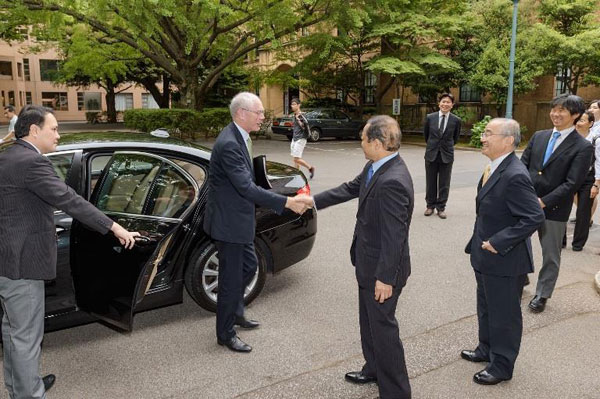 President Van Rompuy on his arrival at Keio University. |
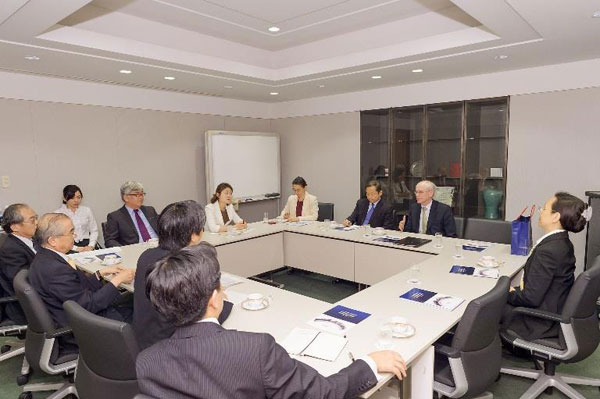 Meeting with Japanese scholars of EU studies prior to the event. |
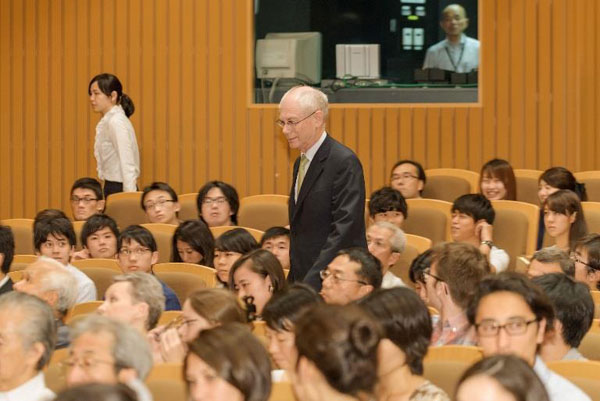 President Van Rompuy entered the conference hall. |
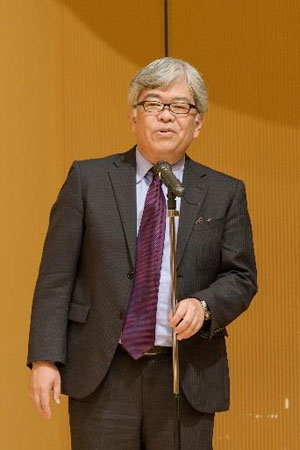
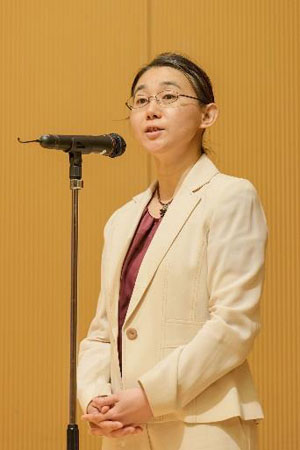 Welcome remarks by Prof. Keigo Komamura, Vice President of Keio University, and Prof. Yumiko Nakanishi, Director of the EUSI. |
In his initial remarks, President Van Rompuy talked about two major crises during his presidency from 2009 to 2014: the Euro crisis and the Ukrainian crisis.
About the first one, President Van Rompuy pointed out that the EU took a dual approach of “responsibility” and “solidarity” to the Euro crisis. He said, in this approach, the EU confirmed that the states under the crisis such as Greece should bear responsibilities for economic reforms, and Europe can strengthen solidarity after they recover the financial stability through those reforms. In order to achieve those goals, the EU assessed the budget plan of each member state to comply with the fiscal discipline, implemented accommodating monetary policies by the ECB, proposed strategic investment programmes for economic growth, and promoted further integration in a wide range of policy areas including the banking union, the energy union and the digital union.
And during the Ukrainian crisis, President Van Rompuy told the EU also took another dual approach of “firmness” and “engagement.” Europe tried to find a united and firm position and imposed sanctions against Russia. But the intention of the sanctions was not to punish Russia but to keep the Russians engaged with the negotiation as a responsible stakeholder. President Van Rompuy recalled his role during the critical moments as a mediator to make arrangements of various opinions of the 28 member states to a single voice.
The panel discussion also dealt with the evaluation of EU-Japan relations compared with EU’s external relations towards other powers. President Van Rompuy explained: “With India we have shared values but too few interest in common, with China huge interests but less common values and with Japan we share values and interests.”
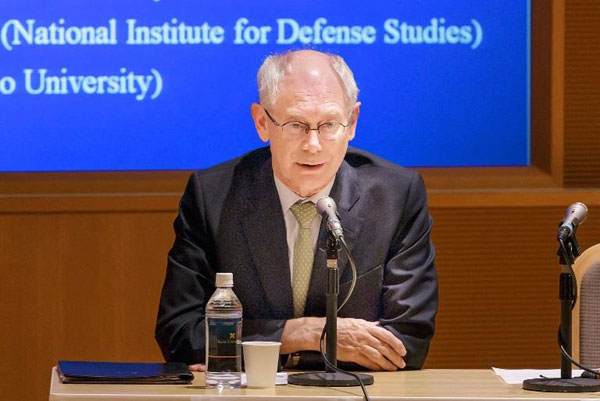 President Van Rompuy’s speech. |
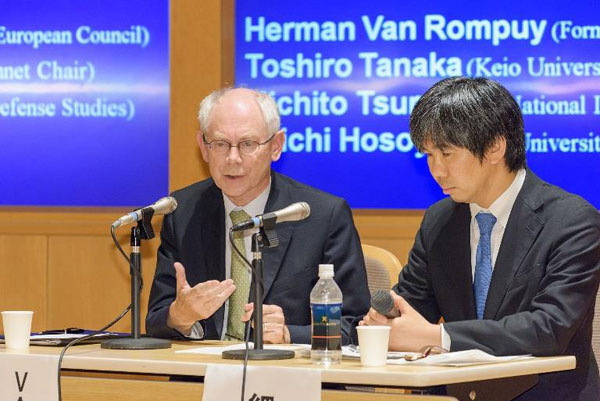 President Van Rompuy with the moderator, Prof. Yuichi Hosoya. |
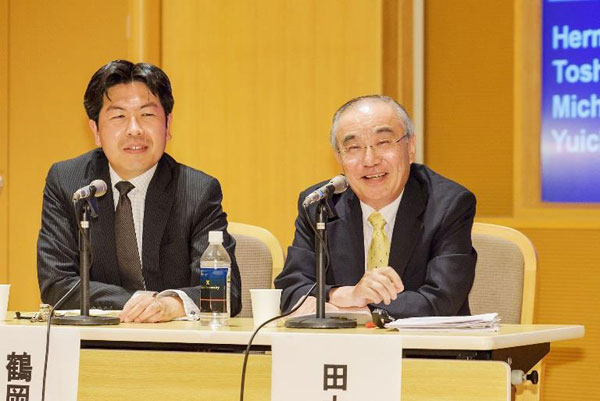 Dr. Michito Tsuruoka and Prof. Toshiro Tanaka. |
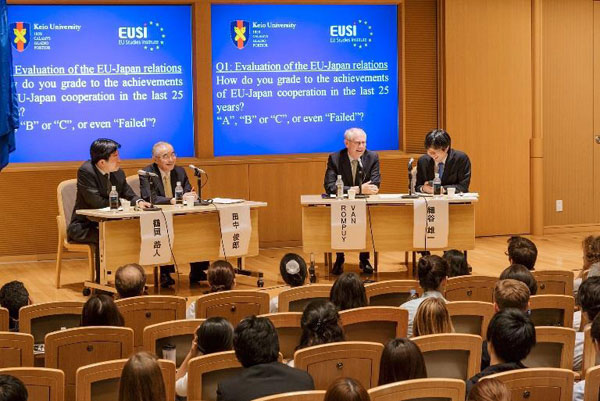 The panel discussion. |
Upon those initial remarks by President Van Rompuy, Prof. Toshiro Tanaka commented that even if Europe had faced certain crises, those critical events rather gave more opportunities for Europeans to promote further integration. He also stressed political and democratic achievements that the EU had been successful in promoting peace, democracy and human rights in Europe as it received the Nobel Peace Prize in 2012. He pointed out that the EU has also played important roles in cultural aspects such as the ERASMUS Programme, based on the Franco-German experiences of youth exchanges sending more than 8 million young people crossing the Rhine since 1963.
And, Dr. Michito Tsuruoka talked about EU’s role in changing international environments. He said the EU faces major challenges from its neighbouring areas, particularly in the East and the South, such as terrorism and the civil war in the Middle East or the Russian aggression to the neighbouring territories to change the status quo by force. Dr. Tsuruoka pointed out that as the EU has expanded its external commitment since the European Security Strategy of 2003, the EU should put more clear priorities over which issues Europe should be responsible for.
The panel discussion drew so much attention of the audience enough to invite a lot of questions and comments from the floor. Among them were how the President prospects the future of the EU while some member states like Greece and the UK show growing popularity of Eurosceptic sentiments among the people in the general election?; how does the EU treat China on bilateral and multilateral issues?; and why the EU just stays moderate in exerting diplomatic influence over global issues compared with the United States? President Van Rompuy respectfully replied to each question, and we concluded the conference with great success.
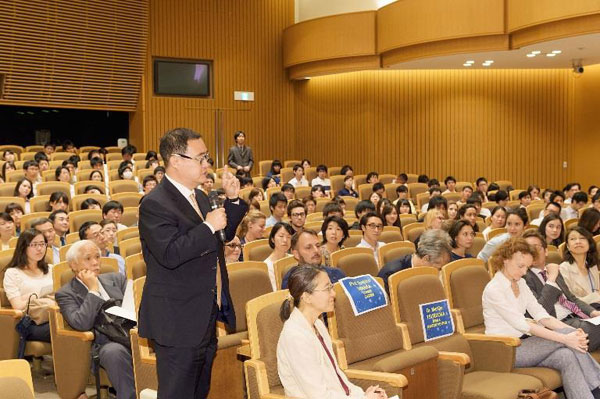 Questions and comments from the floor. |
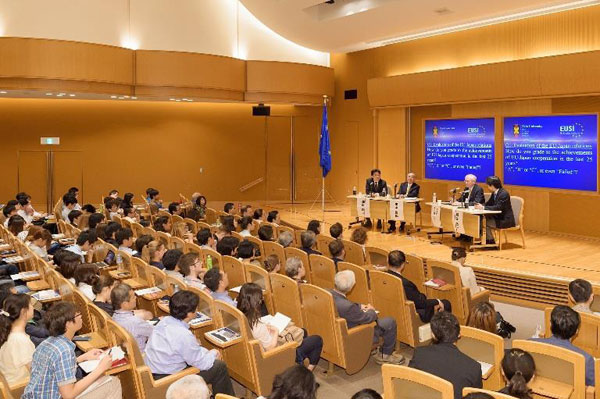 The conference hall during the panel discussion. |
[Photos by Susumu Ishido]
Photogallery
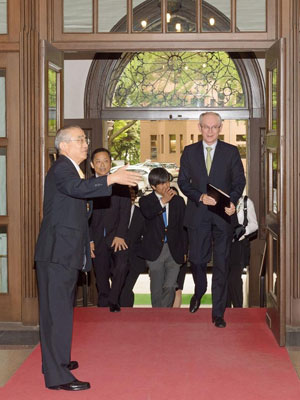 |
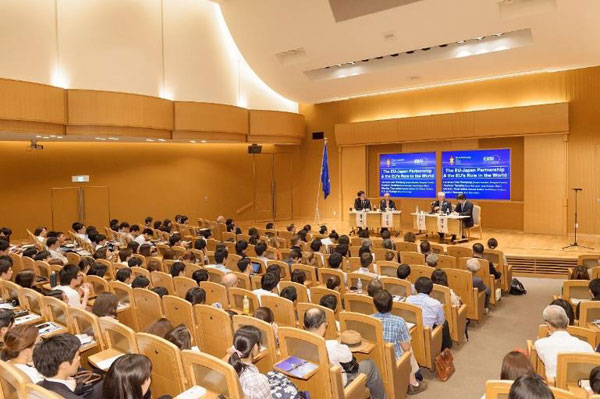 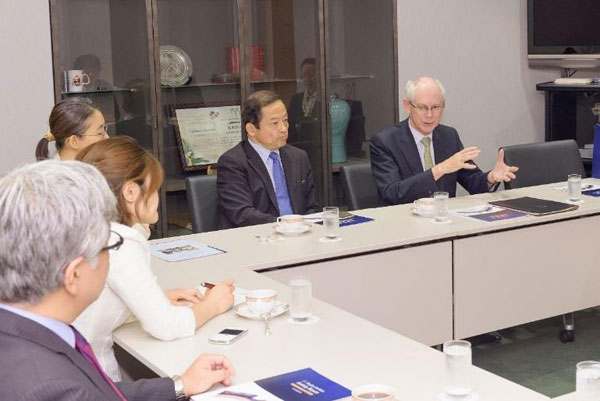 |
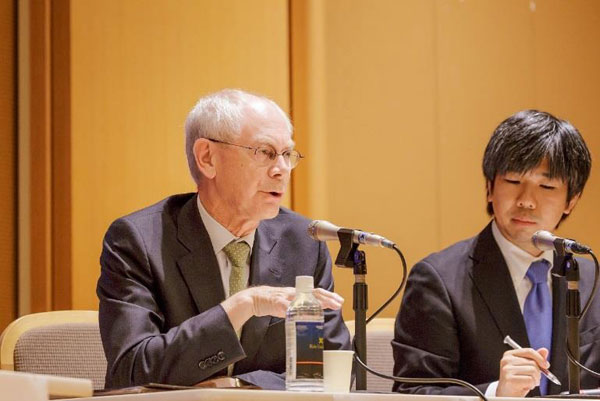 |
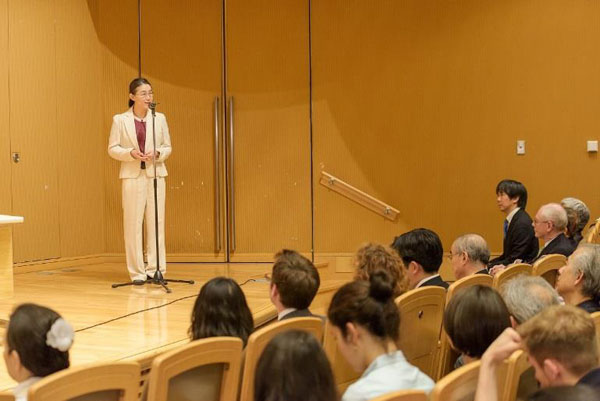 |
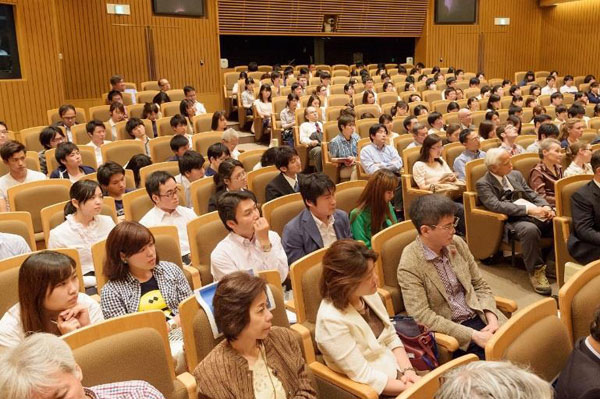 |
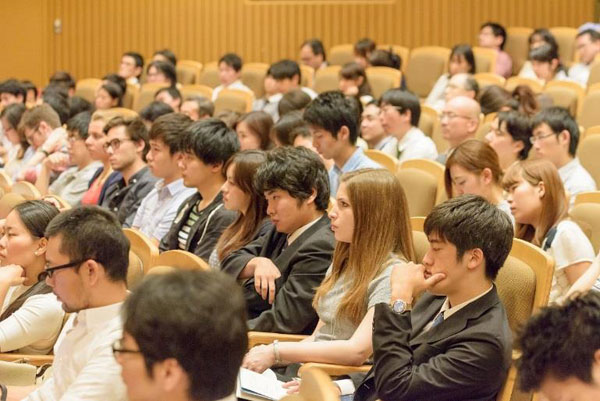 |
[Photos by Susumu Ishido]
